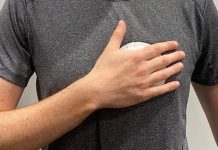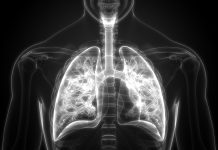Latest study shows people may be able to reduce their risk of atrial fibrillation by avoiding certain triggers like alcohol, with consideration to other lifestyle factors
New research from UC San Francisco, testing the possible triggers of a common heart condition –such as caffeine, sleep deprivation and sleeping on the left side – found that only alcohol use is consistently correlated to more episodes of changing heart rhythm condition.
Published in JAMA Cardiology and presented at the annual Scientific Sessions of the American Heart Association, researchers found that common factors participants thought would affect their atrial fibrillation (AF) weren’t as triggering as alcohol was.
Atrial fibrillation causes over 150,000 deaths in the United States each year
The trial had around 450 participants, 58% of whom were men, and the majority of whom were white at 92%. When studying the disease, researchers prioritised what patients felt when brainstorming individual AF triggers, giving rise to the I-STOP-AFib study, which enabled individuals to test any believed AF trigger.
Participants in the randomized clinical trial used a mobile electrocardiogram recording device along with a phone app to log or anything potential trigger they thought was relevant to their AF.
This included drinking alcohol and caffeine, sleeping on the left side, or not getting enough sleep, eating a large meal, a cold drink, or sticking to a particular diet, engaging in exercise.
Participants in the study were most likely to select caffeine as a trigger for their AF, but researchers found there was no association with the heart condition. Other research from UCSF has correspondingly failed to exhibit a relationship between caffeine and arrhythmias, but investigators contrarily found it actually may have a protective effect.
Research established that consumption of alcohol was the only trigger that consistently resulted in significantly more self-reported AF episodes.
The individualized testing method, known as “n-of-1”, did not validate participant-selected triggers for AF, but noted that trial participants reported less AF episodes than those in the control group.
Avoiding alcohol could lessen the chances of having an AF episode
Lead author Gregory Marcus, MD, professor of medicine in the Division of Cardiology at UCSF said: “This suggests that those personalized assessments revealed actionable results, although caffeine was the most commonly selected trigger for testing, we found no evidence of a near-term relationship between caffeine consumption and atrial fibrillation.
“In contrast, alcohol consumption most consistently exhibited heightened risks of atrial fibrillation.”
Marcus added: “This completely remote, siteless, mobile-app based study will hopefully pave the way for many investigators and patients to conduct similar personalized “n-of-1” experiments that can provide clinically relevant information specific to the individual.”
Those in the intervention group still experienced less arrhythmia than the people in a comparison group that was not self-monitoring.
It was concluded that people could potentially reduce their risk of AF by avoiding these certain triggers.








